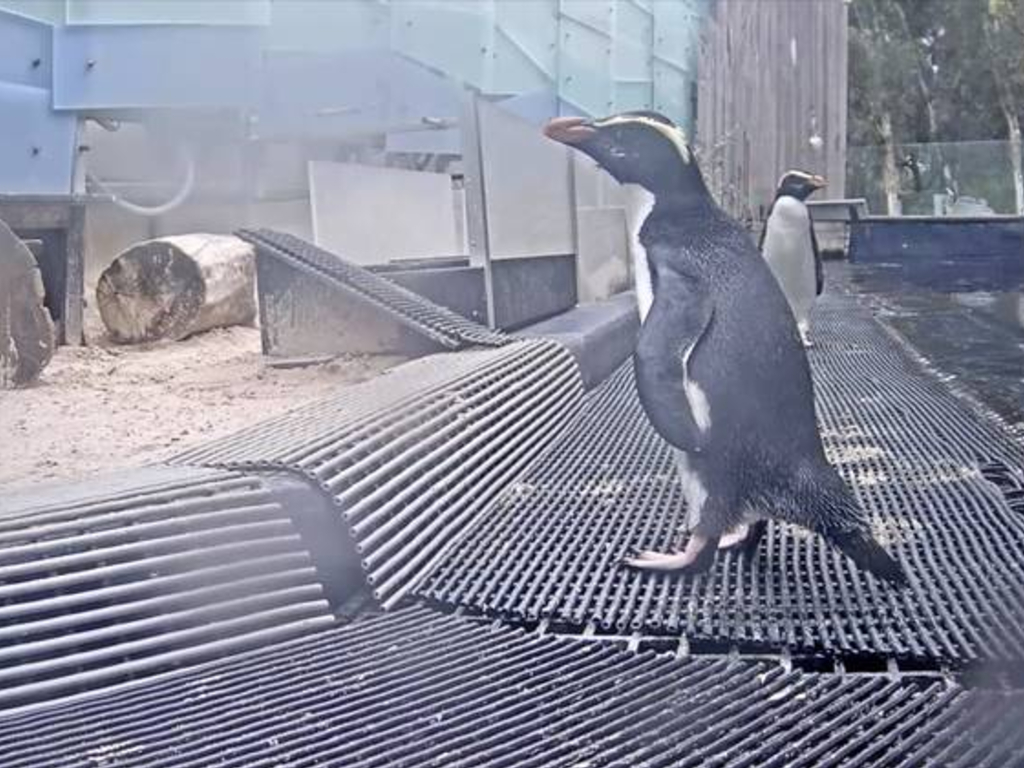The novel coronavirus outbreak has people staying home practicing social distancing, and in response, an Australian zoo is bringing the animals to you.

The Melbourne Zoo installed livestream cameras in its penguin, lion, giraffe and baby snow leopard cages for those who are staying home and away from public spaces.
Even during these uncertain times, animal lovers worldwide will be able to enjoy the simple pleasure of going to the zoo while staying inside to avoid the spread of COVID-19.
Zoos Victoria has set up livestreams at the Melbourne Zoo and in Werribee Open Range Zoo enclosures.
Snow leopard babies, whose enclosure is being livestreamed, were born recently on Jan. 26. Though they’re most often spotted napping, they’re starting to explore a little more, alongside their mom, Miska.
Though many establishments worldwide have closed to the public amid the COVID-19 crisis, Melbourne’s three zoos — Melbourne Zoo, Werribee Open Range Zoo and Healesville Sanctuary — are still open at the time of this writing.

Other zoos around the world are also taking measures to keep their operations interesting during the outbreak.

Get breaking National news
Penguins at a Chicago aquarium are passing the time during the COVID-19 pandemic by visiting their other animal friends.
Typically, the Shedd Aquarium’s penguins are the ones being peered at by visitors and tourists, but since the aquarium was shut down to the public to limit the spread of the novel coronavirus, the black-and-white animals are taking a turn on the other side of the glass.
The aquarium took to Twitter with an adorable video of one of its penguins named Wellington.
Typically, seeing visitors walk by their homes offers a lot of stimulation for the animals. Now, caretakers have to find other ways to keep them stimulated.
—
Questions about COVID-19? Here are some things you need to know:
Health officials say the risk is low for Canadians but warn this could change quickly. They caution against all international travel. Returning travellers are asked to self-isolate for 14 days in case they develop symptoms and to prevent spreading the virus to others.
Symptoms can include fever, cough and difficulty breathing — very similar to a cold or flu. Some people can develop a more severe illness. People most at risk of this include older adults and people with severe chronic medical conditions like heart, lung or kidney disease. If you develop symptoms, contact public health authorities.
To prevent the virus from spreading, experts recommend frequent handwashing and coughing into your sleeve. And if you get sick, stay at home.
For full COVID-19 coverage from Global News, click here.






Comments